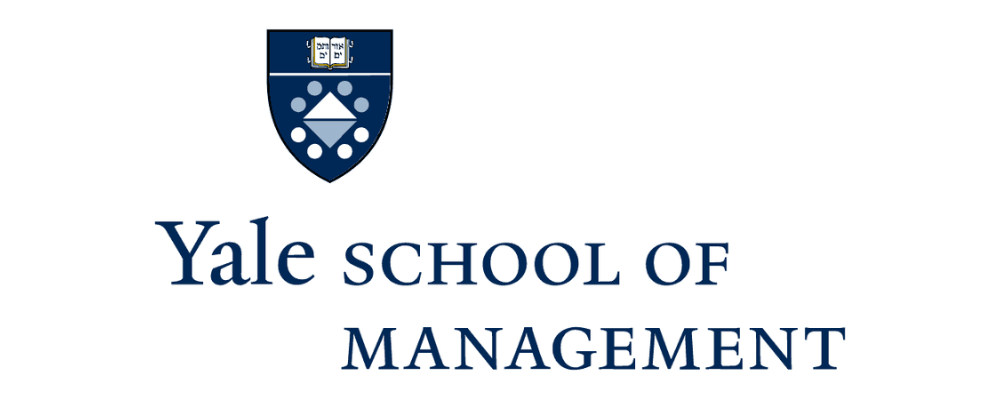Last week, three questions dominated the coverage of indefatigable Ukrainian President Volodymyr Zelensky’s high-profile visit to the United Nations in New York and meetings with President Joe Biden and bipartisan legislators in Washington: How much longer will this war last? How will it end? And what are Ukraine’s prospects as a society afterward?
Freshly back from a visit to Kyiv sponsored by the Victor Pinchuk Foundation’s Yalta European Strategy forum, I have the answers–and they are surprisingly optimistic. No, Ukraine will not be a pathetic basket case reliant upon global generosity trapped in a forever war. Instead, it will be the world’s breadbasket, a beacon of art and culture, and a leader in technology. Yes, peace will likely be restored by January 2025–when Vladimir Putin discovers that the U.S. will remain steadfast in its support for freedom and democracy in Ukraine in the wake of our presidential election.
My conclusions are informed by a lifetime of studying history, economics, business, diplomacy, psychology, leadership, and management, as well as extensive economic research on the region. However, my best data comes from my first-hand conversations with President Zelenskyy, his leadership team, and the Ukrainian people he serves over the last 20 months during which I have worked assiduously in support of Ukraine’s struggle to defend itself as a sovereign, peaceful, democratic nation that is buffering the world from its oppressive, imperialistic, totalitarian neighbor.
Russia’s economic decay
With my research team, we helped spark the historic stampede of 1,200 major multinational firms that fled Russia in protest, shutting down well over a third of Russia’s economy. I helped promote governmental sanctions, which only succeed when joined by such a massive private sector exodus. The disappointments of government sanctions imposed on Cuba, North Korea, and Iran show that the levers of diplomats are just not enough. By contrast, the far more effective economic blockades of South Africa, Romania, East Germany, Poland, Chile, and Libya showed that the cross-sectoral approach of public policy leaders joined by businesses is far more effective. We have also revealed in research with the former ambassador to Russia, Stanford’s Michael McFaul, and our friends at the resurgent Kyiv School of Economics the trade pathways taken by U.S. chipmakers to knowingly or unwittingly circumvent sanctions to equip Russian and Iranian weapons with vital tech components.
I also demonstrated how some naïve Western media, as well as the IMF, had fallen victim to Putin’s propaganda about Russia’s carefully concealed economic performance indicators and exposed the reality of the country’s economic decay. I hosted President Zelenskyy for a series of hours-long live open exchanges with hundreds of U.S. leaders, including the nation’s most prominent CEOs, U.S. legislators from both parties such as Senators Richard Blumenthal and Lindsey Graham, as well as Yale scholars and students.
Although my mother was born in a tiny shtetl on the outskirts of Kyiv, this was my first visit there. To my gratifying surprise, I found that Ukrainian political leaders, soldiers coming back from the frontlines, and baristas in street cafes are well aware and appreciative of efforts such as our own–let alone the full force of allied democracies supplying Ukraine with military and humanitarian aid. I did not see any resentment or isolation. Rather, they are proud of each other–and proud that the world is united in solidarity with them.
Yes, Putin’s economy limps along–but it is on life support. The Wall Street Journal’s courageous reporter Evan Gershkovich remains in prison for the crime of breaking free from the delusion of some of his pampered Western journalist peers who are feted in Moscow’s café society and reporting on the reality of Russia’s shuttered shops and closed factories, which can’t be found in the Potemkin villages invented for Western media. Some sectors of the Russian economy are down 60% to 90%. Before the war, fully two-thirds of Russia’s export revenues came from energy–and even Putin admits that has now been sliced in half due to the success of the oil price caps. With no finished gas pipelines to Asia, his bluff that he could pivot and sell gas to India and China has proven false. The erstwhile destination of that gas, Europe, is now no longer dependent on Russia. As more than 60% of Russia’s remaining economy is state-controlled, Putin egregiously taxes and cannibalizes the productive economy to replenish his own coffers. He is essentially tossing the living room furniture in a furnace to keep the war effort going in a bid to buy time–probably hoping for the improbable scenario of a return of Donald Trump to power in 2025.
The will to live and prosper
In stark contrast to this Russian decay, the Ukrainians today have an extraordinary cache of riches: creativity and ingenuity. At each of our three events spanning the globe unifying leaders with President Zelenskyy across offices, hotels, schools, libraries, and bomb shelters, it was Ukrainian engineers who saved the events from unraveling by repairing vexing technology glitches remotely from the bomb shelter even when my own team could not.
When my friend Tymofiy Mylovanov, the president of the Kyiv School of Economics (KSE), arranged for me to visit his institution, with which we have been working closely as research partners for over a year now, I was blown away by the hundreds of young Ukrainian students I met abounding with creative, original ideas for how each of them could play a role in working towards Ukraine’s victory and recovery. The school’s enrollment has grown an astounding 3.5 times over the past year. One student, Anastasiia, showed me her research on Western businesses exiting Russia. Another student, Serafym, told me about how he came on his own to Kyiv from his village in eastern Ukraine to work towards breaking the pernicious spell of Russian disinformation and propaganda. The entrepreneurial energy and scrappy get-it-done attitude of these students, all anchored in their patriotic values and moral beliefs, make it clear to me that these rising young leaders are ushering in a new, modernized, and Westernized Ukraine.
Rejecting the despairing nihilist despair of post-WWII Europe, Ukrainians are unified by adversity. As existentialist novelist Albert Camus reflects in his book L’Etranger, “One needs more courage to live than to kill himself.” I witnessed that courage from Kyiv’s baristas to the hundreds of optimistic eager students at KSE–and even through the tears of traumatized battle-scarred combat soldiers. One sobbing soldier, Alina Mykhailova, explained that her close friends had been killed by Russians, including her beloved commander Dante. “When asked what I am fighting for, I can’t stop crying now. Quite recently, I lost my beloved Dante on the front lines. I asked him before he was killed why he kept fighting. He said, if I stop fighting, Russia would be here in Kyiv.”
Another soldier, Masi Nayyem, whose eye had been shot out by Russians explained he had no resentment of the lively effort to maintain life as normal in bustling cities such as Kyiv and Lviv, as it represented hope for the future–the belief that their goals were attainable. Similarly, junior sergeant Yehor Firsov explained, “Honestly, when I come to Kyiv I feel so happy. I am ecstatic to see peace here, not holes in the ground. That is why we are fighting on the front lines. We are aware that if we fight on the front lines, we are ensuring peace here. We do not fight in vain.” Such is the power of a peaceful nation wanting to remain free.
Sophia Yushchenko, the daughter of heroic former Ukrainian President Viktor Yushchenko, took me on a tour of Kyiv’s packed Holodomor Museum. Her father had survived an assassination attempt by Putin and he later championed the creation of this memorial to the millions of Ukrainians murdered by Stalin in the 1930s through forced starvation. The Ukrainians have not forgotten.
I also saw how the spirit of Ukraine to resist Russia is mirrored in neighboring Poland, despite the recent spat between the two governments. In some Polish areas, up to 20% of the population are recent refugees from Ukraine. Rather than resent such immigration across the border, crowding job markets and adding millions of dependents to the social safety net, Poles too remember how their top business leaders, government officials, and intellectuals were murdered in the Katyn Forest massacre of 1942.
Indeed, Poland provides a strong blueprint for how a former Soviet state can firmly resist Russian influence and integrate into the West. Warsaw, one of the most vibrant cities in the world today, was left in rubble after its programmatic destruction by Nazis in 1944 as retribution for the Warsaw Uprising. With 84% of buildings destroyed, people only found piles of bricks after the war. But as an exhibit at the Museum of Warsaw argues, “rubble was to Warsaw what Carrara marble is to Rome or Portland stone to London.” The exhibit has been visited by architects and city planners looking to Warsaw’s experience for inspiration as they work on the reconstruction of Ukrainian cities damaged by Russia’s invasion. Warsaw was not only rebuilt but is one of the most populous cities in Europe, with one of the largest number of skyscrapers on the continent.
Today, Poland shows its independence and vitality as one of the first central European nations to completely sever any reliance on Russian energy. “One of the most important ways to help Ukraine is to cut Russia off economically, to stop buying Russian gas. That is what we have done in Poland, and we now buy no piped gas from Russia at all,” Marcin Chludzinski, the CEO of Poland’s GAZ System told me two weeks ago. Earlier at the Yale Mayor’s College, Warsaw Mayor Rafal Trzaskowski of Warsaw explained his city’s warm welcome of 300,000 Ukrainian refugees saying, “We are doing everything we can to help Ukraine. Civil society is stepping up.” At the Yale CEO Summit, Nobel Peace Prize winner and former president of Poland Lech Walesa underscored the motivation to block Putin’s imperialistic mission saying, “There are more countries than just Ukraine that Russia wants to conquer.”
Dr. Martin Luther King inspired civil rights advocates with his visionary words “I have seen the future,” describing his aspirations for racial harmony as achievable. Social scientists across disciplines from Kurt Lewin and Herbert Kelman to Roger Fisher and Viktor Frankl shed light on the social and psychological basis for these visions. Frankl, a psychiatrist who survived Holocaust concentration camps, said that those who survived needed to believe that there was a reason to go on. They needed to imagine life beyond the barbed wire once Hitler was defeated.
“The one thing you can’t take away from me is the way I choose to respond to what you do to me. The last of one’s freedoms is to choose one’s attitude in any given circumstance. Happiness cannot be pursued; it must ensue. Life is never made unbearable by circumstances, but only by lack of meaning and purpose,” he said.
Ukraine has a sense of purpose that reflexively and universally rejects the dirty deal some misguided Western observers have in mind, which would echo Neville Chamberlain’s failed 1938 appeasement of Hitler. Chamberlain disastrously presumed that surrendering the German-speaking part of Czechoslovakia right as Hitler seized the Rhineland and Austria would halt his expansionist agenda. That defeatist mindset of capitulating to Putin is simply not in the Ukrainian national psyche. The Ukrainian people have chosen to live and prosper–and they will.
“The Yale School of Management is the graduate business school of Yale University, a private research university in New Haven, Connecticut.”
Please visit the firm link to site



